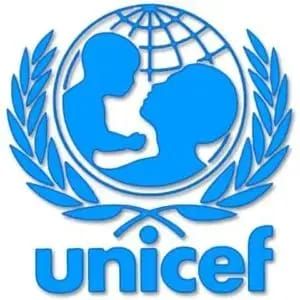The United Nations Children’s Fund (UNICEF) has commended the Kano State Government for being the first in Nigeria to contribute a record ₦500 million to the Child Nutrition Fund (CNF), describing it as the largest single donation by any state in the country.
Speaking during a health-focused event in Kano, the Chief of UNICEF Field Office, Mr. Rahama Rihood Mohammed Farah, disclosed that UNICEF has matched the state’s commitment with an equal sum of ₦500 million, bringing the total intervention to ₦1 billion.
According to Farah, the joint fund was used to procure 12,948 cartons of Ready-to-Use Therapeutic Food (RUTF), which will provide treatment for more than 17,000 children suffering from severe acute malnutrition in the state.
“In further support of Kano’s efforts, UNICEF has also supplied large quantities of Vitamin A supplements and Multiple Micronutrient Supplements (MMS) for the first round of the Maternal, Newborn and Child Health Week (MNCHW),” he said. “This initiative will benefit over 2.6 million children between the ages of six and 59 months, and around 500,000 pregnant women, covering 80 percent of the targeted populations.”
Farah noted that UNICEF’s partnership with the Kano State Government remains strong and focused on improving health and nutrition outcomes, particularly for women and children.
“We encourage families to take advantage of the MNCH Week to improve routine immunization coverage, with special attention to Pentavalent, polio, HPV, and Td vaccines,” he added.
The UNICEF representative called on Governor Abba Kabir Yusuf to further invest in the CNF in 2025, assuring that UNICEF will again match any contributions made to scale up the provision of critical nutrition supplies such as RUTF and MMS.
Farah also urged the government to ensure the second round of MNCH Week is conducted no later than early December 2025 and to procure enough deworming tablets to cover all children aged 12 to 59 months.
He advocated for increased paid maternity leave to promote maternal and infant health, encourage exclusive breastfeeding, and called for expansion of the healthcare workforce in rural areas to enable round-the-clock service delivery.
“Kano has continued to show exemplary leadership in health, nutrition, and WASH (Water, Sanitation and Hygiene) through timely fund releases, quality service delivery, and the creation of an enabling environment,” he said.
With a population of over 17 million, including approximately 3.5 million children under five and 900,000 pregnant women, Farah described Kano as “strategically significant” in addressing the rights and welfare of women and children in Nigeria.
He emphasized that the implementation of two rounds of MNCH Week, delivering Vitamin A supplements, deworming, anti-malaria treatments, and immunizations for children, as well as MMS for pregnant women,will help secure a healthier future for the state’s most vulnerable.
UNICEF defines child food poverty as the inability of children to access and consume a nutritious and diverse diet in early childhood, which is crucial for proper growth and brain development. According to Farah, around 11 million children under the age of five in Nigeria face severe food poverty, making them up to 50 percent more likely to suffer from wasting, a life-threatening form of malnutrition.
“In Kano, 51.9 percent of children are stunted, meaning they are not growing well, and more than 10 percent are wasted, or too thin for their height,” he said.
To combat this crisis, UNICEF and its development partners have consistently invested in improving Nigeria’s nutrition landscape, with the CNF emerging as a game-changing initiative.
The Child Nutrition Fund, supported by donors such as CIFF-UK, FCDO, KIRK Humanitarian, and the Bill & Melinda Gates Foundation, is a catalytic financing mechanism managed by UNICEF. It allows national and sub-national governments to double their investments in essential nutrition commodities through a 1:1 matching model, accelerating the prevention, early detection, and treatment of child malnutrition.















